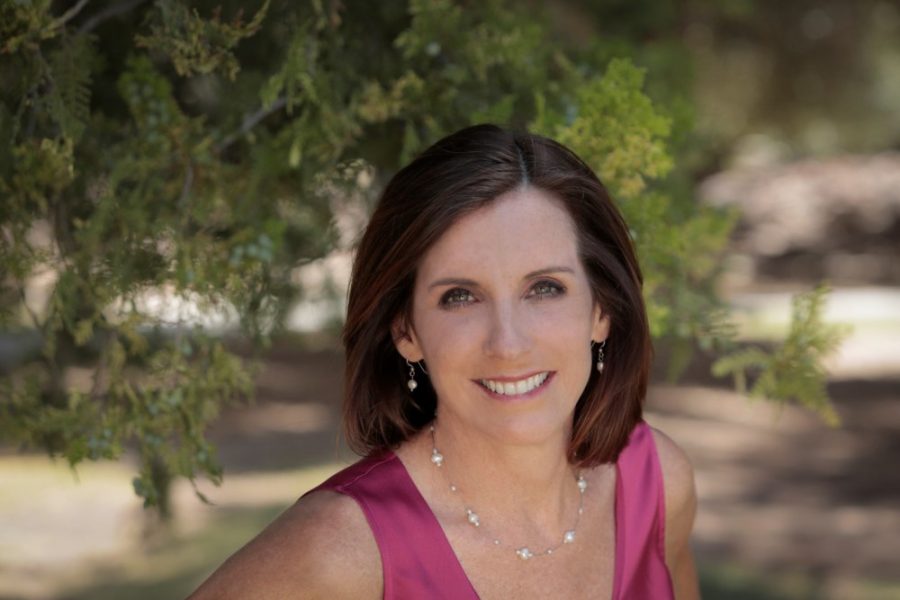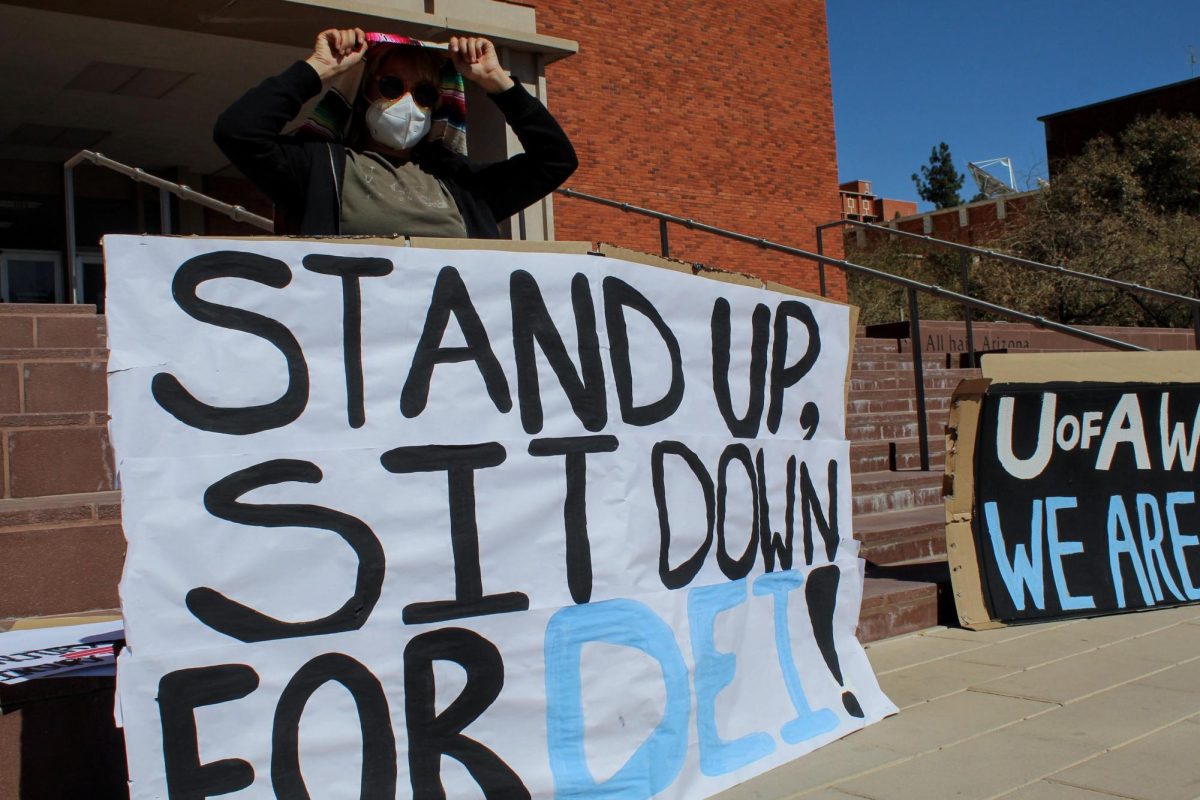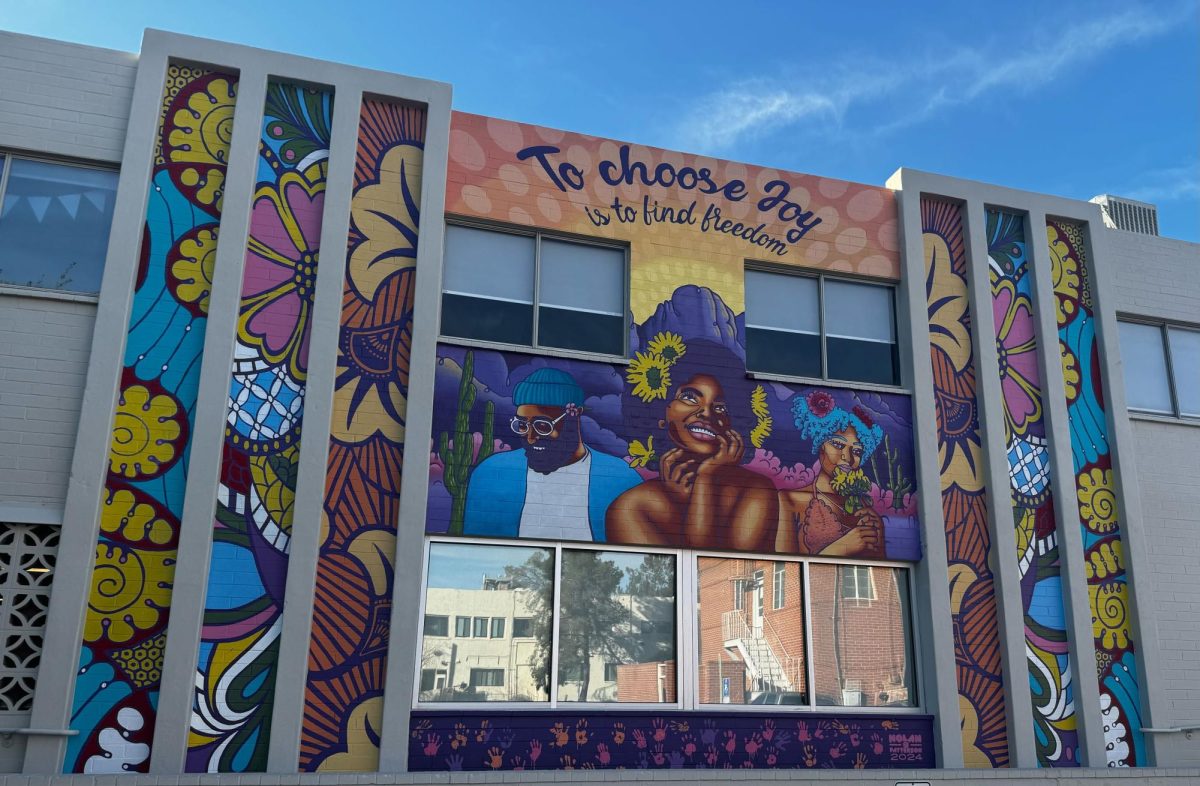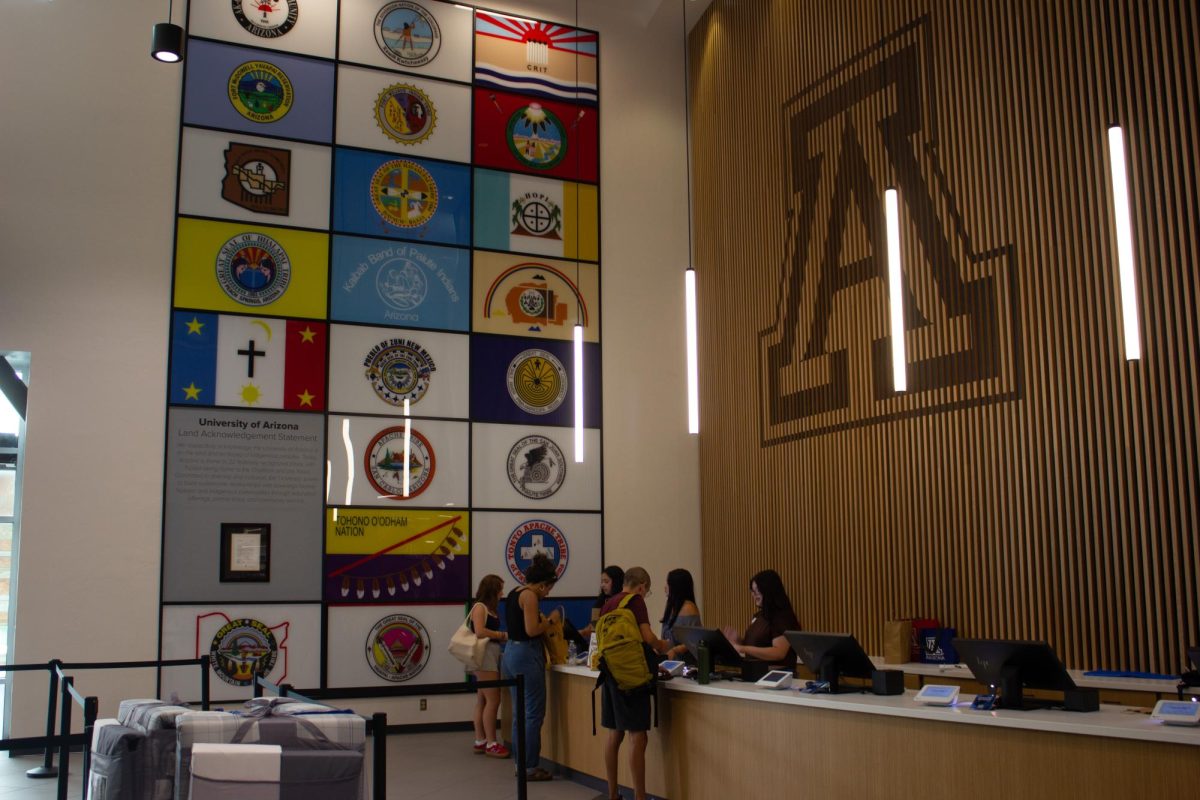Congresswoman Martha McSally is making big waves in her fight for women’s equality as Women’s History Month comes to an end.
“I was brought up in a family where I was told I could be anything I wanted to be, that I had no restrictions on me because I was a girl,” McSally said. “But it wasn’t until I went off to the Air Force Academy that I discovered there were restrictions on women.”
McSally is the first female fighter pilot to fly in combat and the first to command a fighter squadron in combat in United States history. McSally retired from the U.S. Air Force as a colonel in 2010.
McSally said she believes America is about equal opportunity and as long as you work hard to find a pathway to your dreams, you can achieve anything.
“It doesn’t matter what your gender, race or religion is.” McSally said. “It just doesn’t matter.”
While she is a proponent for human rights in general, McSally is particularly outspoken about women’s rights.
“For me, my version of feminism is that girls and women can be anything they want to be,” McSally said. “They can achieve their dreams and potential, whatever that is, and they have that choice and opportunity, and they’re not artificially restricted by law or policy, but also by culture and attitudes.”
These attitudes can be invisible barriers, according to McSally. She said, however, that feminism isn’t something that is achieved at the expense of men achieving their dreams.
“We are all better, our country is better, when all men and all women are able to achieve their full potential,” McSally said.
She added that she’s fighting for equality in a broader sense, in ensuring that the American dream is available to everyone.
“Whatever it is you want to do, we need to make sure you have a pathway to be able to get the skills, the training, education and get the job or open up the business,” McSally said. “That’s what has made America great.”
McSally said she thinks the only way to make sure the American dream is still available to everyone in years to come is by “lifting the shackles” on the cost of higher education and cutting back on regulations that restrict business growth.
McSally also stressed acknowledging the importance of working to combat human trafficking in Southern Arizona and around the country.
Along with Rep. Loretta Sanchez from California, McSally is introducing legislation to enhance trafficking prevention efforts at the Department of Homeland Security.
“Especially in a border community, people equate trafficking to trafficking migrants over the border and there is some of that happening,” McSally said. “But there’s a difference between smuggling and trafficking.”
The majority of trafficking victims in our country are Americans, according to McSally.
“They are the most vulnerable,” McSally said. “They’re runaway youth, the potentially disabled, those who come across hard times or are on the verge of homelessness.”
The victims of trafficking are taken prisoner, sometimes controlled with drugs and are sold over and over and put into sex or slave labor.
“It’s happening under our noses,” McSally said. “It’s happening in our community.”
McSally is working together with the federal, state and local governments to combat this human crisis by focusing on providing training for law enforcement officers, who are often the first to encounter a trafficking victim, or health care officials, so victims don’t remain unseen.
McSally isn’t just fighting for women in the present or future; she’s also fighting for from the past.
Recently, McSally introduced legislation for the WASP’s Arlington Inurnment Restoration Act. The bill restores the rights of the Women Airforce Service Pilots, who were female pilots during World War II, to have their ashes inurned at Arlington National Cemetery.
“It was infuriating to see that at the time the Pentagon is opening up all these positions to women in the military, they’re closing the gates of Arlington to the pioneers who went before us to pave the way,” McSally said.
McSally’s WASP Arlington Inurnment Restoration Act was unanimously passed in the House of Representatives in March.
“This is personal to me because when I first came to Davis-Monthan to transition into the A-10 [attack aircraft], a number of the WASPs came alongside me as mentors and encouragers, or ‘wing-women,’ as I call them,” McSally said. “These women were awesome. They’re feisty and independent.”
McSally said she’s looking forward to continuing the lead to fight against defeating gender barriers.
Follow Amanda Oien on Twitter.









